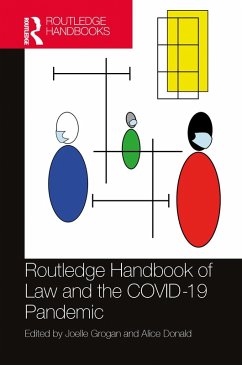
Suicide and the Law (eBook, ePUB)
Versandkostenfrei!
Sofort per Download lieferbar
35,95 €
inkl. MwSt.
Weitere Ausgaben:

PAYBACK Punkte
18 °P sammeln!
This book investigates the law's approach to suicide in England and Wales. It explores the seismic shift in perceptions of the law's role in respect of suicide from imprisonment as a punishment for attempting suicide, to courts hearing arguments about whether there is not only a right to suicide but also a right to assistance in suicide. This development stands alongside a global recognition of suicide prevention as a public health priority. In this book, the dual priorities of respect for autonomy and the protection of human life are recognised as equally important and the legal issues surrou...
This book investigates the law's approach to suicide in England and Wales. It explores the seismic shift in perceptions of the law's role in respect of suicide from imprisonment as a punishment for attempting suicide, to courts hearing arguments about whether there is not only a right to suicide but also a right to assistance in suicide. This development stands alongside a global recognition of suicide prevention as a public health priority. In this book, the dual priorities of respect for autonomy and the protection of human life are recognised as equally important and the legal issues surrounding suicide in a range of different contemporary contexts, including suicide in prison and juvenile suicide, are considered. The book also investigates what the relationship between mental health and suicide means for its legal regulation, and evaluates the enduring legal offence of assisted suicide, particularly in the context of the terminally ill. It is argued that a more refined approach to the topic of voluntary death should be recognised in the law; one that distinguishes more clearly between autonomous decision-making about the end of life, and incapacitated self-caused risks to life that require effective preventative interventions.













